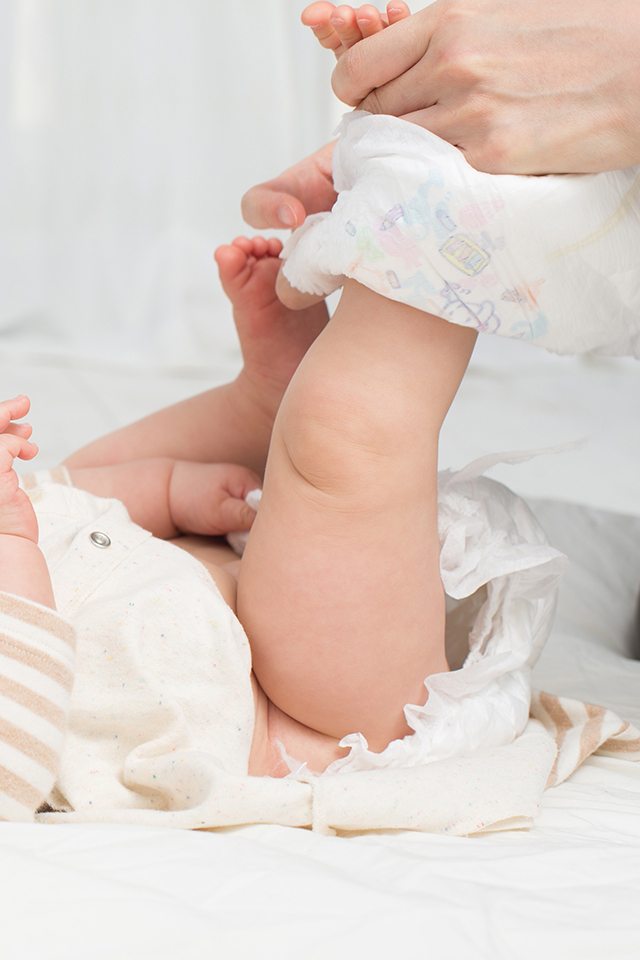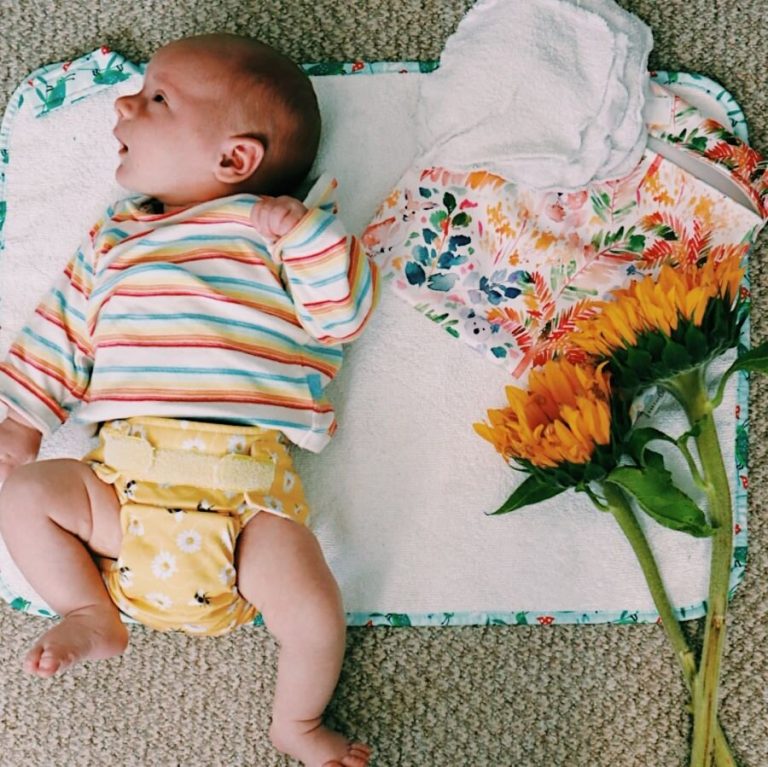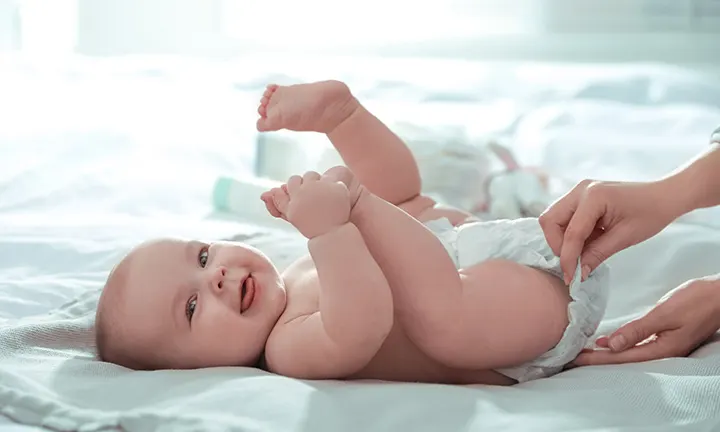Why Do Babies Not Like Diaper Changes? Uncover the Secrets
Babies dislike diaper changes because they feel uncomfortable and dislike the disruption of their activities. They may also feel cold and vulnerable.
Diaper changes can be a challenging experience for both babies and parents. Babies often resist diaper changes because they feel exposed and cold, leading to discomfort. The process interrupts their playtime or other activities, causing frustration. Babies prefer to stay in familiar, warm, and comfortable environments.
Understanding these feelings can help parents make diaper changes smoother. Creating a warm, engaging atmosphere and using distractions can ease the process. Parents should remain calm and patient, ensuring a positive experience for their little ones. Making diaper changes quick and efficient can also help minimize discomfort for the baby.
Common Baby Reactions
Diaper changes can be a challenge. Babies often show strong reactions. Understanding these reactions can help parents. Here are some common ways babies react during diaper changes.
Crying And Fussing
Babies often cry and fuss during diaper changes. This might happen because they feel exposed. They might also be uncomfortable. Cold wipes can startle them. The new position can make them uneasy.
Another reason is hunger. If your baby is hungry, they might be more irritable. Babies also cry if they are tired. Timing the diaper change can help reduce fussing.
Physical Resistance
Some babies show physical resistance. They might kick their legs. They could arch their backs. Rolling over is also common. These actions can make diaper changes tricky.
Babies resist because they want to move freely. Being held still can be frustrating. Distractions like toys or songs can help. Keep the baby engaged to reduce resistance.
Sensory Overload
Babies often dislike diaper changes due to sensory overload. During diaper changes, several factors can overwhelm their delicate senses. These experiences can make the process uncomfortable and stressful for them.
Bright Lights
Diaper changes typically happen in well-lit areas. Bright lights can be harsh on a baby’s sensitive eyes. This sudden exposure can cause discomfort and distress. Babies may squint or cry due to the brightness. Consider dimming the lights or using softer lighting during diaper changes.
Cold Air
Another factor contributing to sensory overload is the sensation of cold air. When a diaper is removed, babies feel the sudden change in temperature. This can be very uncomfortable for them. Babies may shiver or cry because of the cold air. To ease this discomfort, keep the room warm and use a warm wipe.
Understanding these sensory factors can help make diaper changes smoother. By minimizing bright lights and cold air, you can reduce your baby’s discomfort. This can lead to a more pleasant experience for both you and your baby.
Discomfort And Sensitivity
Babies often dislike diaper changes due to discomfort and sensitivity. Understanding these factors can help parents make diaper changes smoother. Let’s explore the reasons behind this sensitivity.
Sensitive Skin
Babies have delicate skin. It can easily get irritated by diapers. Even the softest diapers can cause discomfort. Wet diapers can cause rashes. These rashes can be painful and itchy. This makes babies unhappy during diaper changes.
Parents should use gentle wipes. They should also apply diaper cream. This helps protect the skin. Changing diapers frequently is also important. It keeps the baby’s skin dry and comfortable.
Uncomfortable Positions
Diaper changes often require awkward positions. Babies need to lie down on their backs. This position may not be comfortable. Babies love to move and explore. Being still can be hard for them.
Make sure to use a soft changing pad. This can make the position more comfortable. You can also give them a toy to hold. It can distract them during the change.
| Reason | Solution |
|---|---|
| Sensitive Skin | Use gentle wipes and diaper cream |
| Uncomfortable Positions | Use a soft changing pad and give a toy |
:max_bytes(150000):strip_icc()/Parents-GettyImages-527030452-bc009352f4af4cb6a3376f49e81cfa7c.jpg)
Credit: www.parents.com
Emotional Factors
Babies often resist diaper changes due to emotional factors. Understanding these emotions can help parents manage diaper changes better. Let’s explore some key emotional reasons behind this behavior.
Feeling Vulnerable
Babies feel vulnerable during diaper changes. They are exposed and out of their comfort zone. This vulnerability can cause distress.
Consider the following points that contribute to this feeling:
- Babies lie on their backs, feeling defenseless.
- They are unable to move freely.
- They may feel cold without their clothes.
These factors can make diaper changes uncomfortable for babies. Ensuring a warm, secure environment can ease this discomfort.
Separation Anxiety
Babies may experience separation anxiety during diaper changes. They feel disconnected from their parent or caregiver.
Key aspects of separation anxiety include:
- Babies feel anxious when they can’t see their caregiver.
- They may cry or become fussy.
- This anxiety is common in babies around 6-8 months old.
To alleviate separation anxiety, try maintaining eye contact. Talking softly can also help comfort your baby during diaper changes.
Developmental Stages
Understanding why babies resist diaper changes involves looking at their developmental stages. Babies grow and change quickly in their first years. These changes impact their reactions to daily activities.
Motor Skills
During the early months, babies develop new motor skills. They start learning to roll, sit, and crawl. These movements make it harder to keep them still during diaper changes. Babies enjoy moving around and exploring their bodies.
They may resist because they want to keep moving. Their little bodies crave activity and freedom. Holding them still can feel frustrating for them.
| Age | Motor Skills |
|---|---|
| 0-3 months | Learning to roll over |
| 4-6 months | Sitting up with support |
| 7-9 months | Crawling |
| 10-12 months | Standing and cruising |
Cognitive Awareness
As babies grow, their cognitive awareness also improves. They start recognizing routines and patterns. Diaper changes become predictable events. Sometimes, the feeling of a cold wipe or being held down is unpleasant.
Babies also become aware of their surroundings. They might notice interesting things around them. Distracting them from a diaper change can help. Use toys or sing songs to make it more enjoyable.
- Introduce a favorite toy during changes
- Sing a fun song
- Engage with playful sounds
Parental Influence
Parental Influence plays a significant role in why babies dislike diaper changes. The way parents react and handle diaper changes can affect the baby’s comfort and cooperation.
Parental Stress
Parents often feel stressed during diaper changes. Babies can sense this stress. When parents rush or show frustration, babies become more anxious. This makes them resist diaper changes.
Creating a calm atmosphere helps ease the process. Parents should take deep breaths and stay relaxed. Talking softly and smiling can also soothe the baby.
Communication Cues
Babies pick up on non-verbal communication cues from their parents. Facial expressions, tone of voice, and body language all matter. Positive cues make diaper changes smoother.
Parents should use gentle words and maintain eye contact. Singing a song or playing peek-a-boo can distract the baby. These actions create a positive association with diaper changes.
Creating A Positive Experience
Many parents find diaper changes challenging. Babies often fuss and squirm. Creating a positive experience can make diaper changes easier. Below are some gentle techniques and soothing strategies to help.
Gentle Techniques
Using gentle techniques can make a big difference. Here are some tips:
- Warm Hands: Cold hands can startle babies. Rub your hands together to warm them.
- Soft Voice: Speak softly and calmly. This can soothe your baby.
- Slow Movements: Move slowly and gently. Quick movements can make babies anxious.
Soothing Strategies
Soothing strategies can help keep your baby calm. Try these ideas:
- Sing a Song: Singing can distract and calm your baby.
- Use Toys: Give your baby a favorite toy to hold.
- Play Music: Soft music can create a calming atmosphere.
By using these techniques and strategies, diaper changes can become a positive experience for both you and your baby.

Credit: babylove.co.th
Alternative Solutions
Diaper changes can be a struggle for both parents and babies. Babies often dislike diaper changes due to discomfort, cold wipes, or feeling restricted. Fortunately, there are several alternative solutions to make this routine task easier and more enjoyable for everyone involved.
Distraction Methods
Distraction can be a powerful tool to ease diaper changes. Keep your baby engaged with their favorite toys or music.
- Interactive toys: Use toys that light up or make sounds.
- Sing a song: Singing can calm your baby and make them happy.
- Play a video: Short clips of cartoons can work wonders.
These distraction methods help redirect your baby’s attention. This makes diaper changes less stressful for both of you.
Comfort Items
Comfort items can make your baby feel safe and secure during diaper changes. Familiar objects can reduce anxiety and fussiness.
| Comfort Item | How it Helps |
|---|---|
| Blanket | Provides warmth and a sense of security. |
| Favorite stuffed animal | Offers comfort and familiarity. |
| Pacifier | Can soothe and calm your baby instantly. |
Using comfort items can significantly improve your baby’s mood during diaper changes. They help create a more relaxed environment, making the process smoother.

Credit: www.sleepingbaby.com
Frequently Asked Questions
Why Do Babies Cry During Diaper Changes?
Babies cry during diaper changes because they feel discomfort or cold. The change disrupts their sense of security and routine.
How Can I Make Diaper Changes Easier?
To make diaper changes easier, keep your baby distracted. Use toys, songs, or gentle talking to calm them.
Are There Any Tips For Faster Diaper Changes?
Yes, gather all supplies beforehand and use quick, efficient movements. Practice makes the process faster over time.
Do Certain Diapers Cause More Discomfort?
Yes, some diapers can cause discomfort due to poor fit or material. Choose soft, breathable, and well-fitting diapers.
Conclusion
Babies often resist diaper changes due to discomfort, cold, or interruption of play. Understanding these reasons helps parents ease the process. Being gentle, quick, and engaging can transform diaper changes into a more pleasant experience. These tips can make a significant difference for both parents and babies.






